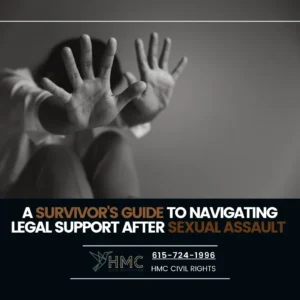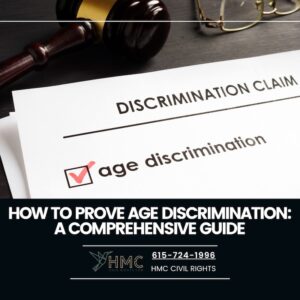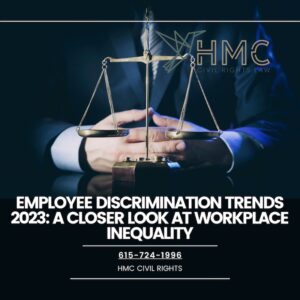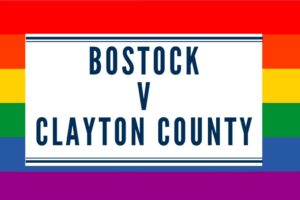Do you want to learn more about LGBTQ discrimination in the workplace?
You’re not alone. Millions of people face discrimination and harassment in the workplace based on their sexual orientation or gender identity/expression. This type of discrimination is often called “LGBTQ discrimination” or “LGBT discrimination.”
In this article, we will be discussing what LGBTQ discrimination in the workplace is. We will be looking at the different types of discrimination that can occur, how it impacts employees and businesses, and what laws protect employees from this type of discrimination.
Finally, we will give readers some tips on what they can do if they experience LGBTQ discrimination in their place of employment, as well as ways that employers can make their workplaces more inclusive for everyone.
Read on to learn more about LGBTQ discrimination in the workplace!
What is LGBTQ Discrimination in the Workplace?
LGBTQ discrimination in the workplace is any type of discrimination or harassment based on an individual’s sexual orientation or gender identity/expression. This can include but is not limited to things like LGBTQ people:
- Being denied a job or promotion
- Being harassed at work by co-workers or superiors
- Being mistreated at work
- Being passed over for assignments or opportunities
- Being denied access to restrooms or other facilities that correspond to their gender identity
- Being fired or forced to resign because of their sexual orientation or gender identity
- Receiving verbal harassment, threats, or slurs related to their LGBTQ status
This type of discrimination can occur in any workplace, regardless of company size or industry. It can also happen at any stage of an individual’s employment, from the hiring process to after they have been with a company for many years.
Impact of LGBTQ Discrimination in the Workplace
LGBTQ discrimination in the workplace can have several negative impacts on both employees and businesses.
For employees, this type of discrimination can lead to feelings of isolation, anxiety, and depression. It can also impact an individual’s ability to do their job effectively. In some cases, LGBTQ discrimination can even lead to physical violence.
This type of discrimination also takes a toll on businesses. Studies have shown that companies perceived as hostile environments for LGBTQ employees are less productive and have higher absenteeism rates.
A UCLA School of Law survey recently found that nearly half of LGBTQ workers have faced employment discrimination.
The same survey also reported that 46 percent of LGBTQ workers reported receiving unfair treatment at some point in their careers because of their sexual orientation or gender identity — including being passed over for a job, harassed at work, denied a promotion or raise, excluded from company events, denied additional hours or fired.
An estimated 9 percent of respondents reported being denied a job or laid off in the past 12 months because of their orientation or identity.
Employment discrimination like this can lead to employees feeling like they have to suppress a significant part of who they are, which can impact their mental and physical health and job performance.
Some such examples of this discrimination in the workplace are:
- Transgender employees being denied access to restrooms that correspond to their gender identity
- LGBT people being passed over for promotions or assignments
- Nonbinary people being forced to use gendered pronouns that they do not identify with
These are just a few examples of how LGBTQ discrimination can manifest in the workplace.
But there are some laws to protect them from these kinds of discrimination based on sexual orientation or gender identity.
Laws Protecting LGBTQ Employees
Fortunately, our nation is taking steps to protect LGBTQ employees from discrimination. There are several federal and state laws that prohibit discrimination on the basis of race, color, religion, sex, and national origin.
Here are just a few:
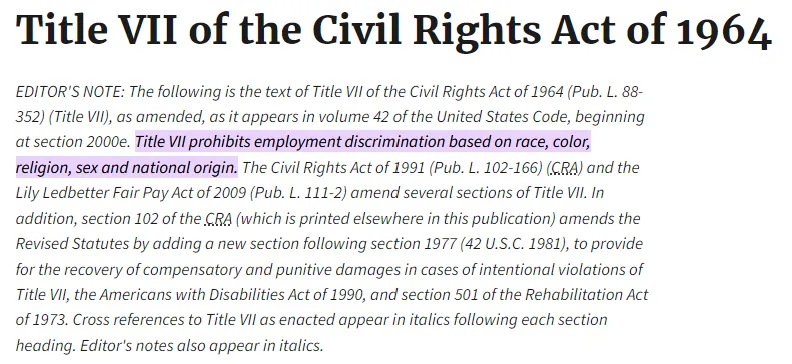
Title VII
Title VII of the Civil Rights Act of 1964 prohibits employers with 15 or more employees from discriminating on the basis of sex. Title VII has been interpreted to prohibit sexual orientation and gender identity discrimination. To learn more about notable EEOC Title VII & discrimination litigation, read this article on the EEOC’s website.
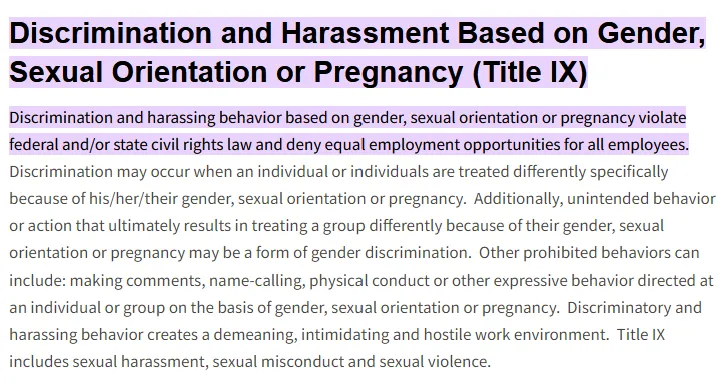
Title IX
Title IX is a federal law that prohibits discrimination based on sex in any educational program or activity that receives federal financial assistance.
This law not only protects students from discrimination based on their sex but also from sexual harassment and discrimination for failing to conform to gender stereotypes. LGBTQQ students have successfully relied on Title IX’s protections in several court cases involving schools, proving that this law can be used to protect them from discrimination and harassment.
The U.S. and State Constitutions
Additionally, the United States Constitution guarantees all people, including LGBTQQ people, “equal protection of the laws.” This means that public schools can’t single out LGBTQ students for adverse treatment just because school officials disapprove of being gay or feel uncomfortable around people whose gender identity or expression differs from theirs.
When it comes to peer conflicts and abuse, courts have made clear that the federal Constitution prohibits public schools from taking bullying and harassment any less seriously just because the targets are LGBTQ.
“We’ve got to end LGBT discrimination in the workplace. Vermont did this 22 years ago when it passed one of the first state laws in the country protecting lesbian and gay workers. Congress should have acted long ago, but Republicans have blocked action.”
— Clay (@kid_clay) March 27, 2020
Some state and local jurisdictions have passed similar laws (with Vermont being the first, as shown above), and these numbers are growing. Freedom For All Americans has compiled a comprehensive list of these laws and ordinances. Read the list to find your state’s laws on LGBTQQ nondiscrimination.
What You Can Do If You Experience LGBTQ Discrimination in the Workplace
If you experience discrimination at work, you can do a few things.
First, document everything. Write down what happened, when it happened, and who was involved. This will be important if you decide to take legal action later on.
Second, talk to a supervisor or human resources department about what happened. If your company has an anti-discrimination policy, make sure to point this out.
Third, you can file a complaint with the Equal Employment Opportunity Commission (EEOC). The EEOC is the federal agency responsible for enforcing laws that prohibit workplace discrimination.
You can also submit your case to an attorney for review to find out if you have any legal options available to you.

Have Your Legal Matter Reviewed By An Attorney
Here at HMC Civil Rights, we believe everyone deserves to be treated fairly in the workplace. If you have experienced discrimination, we may be able to help.
Contact us today to have your legal matter reviewed by our team. We would be more than happy to review your case and see if we can assist you.
Tips for Employers
Employers can do a few things to make their workplaces more inclusive for everyone, regardless of sexual orientation or gender identity.
First, create and enforce anti-discrimination policies that include protections for LGBTQ employees. Ensure all employees are aware of these policies and know how to report any incidents of discrimination.
Second, provide training for employees and managers on LGBTQ nondiscrimination, harassment, and retaliation. This will help ensure that everyone in the workplace is aware of what constitutes discrimination and knows how to handle reports of it.
Third, create a system for reporting and investigating complaints of LGBTQ discrimination. This will give employees a place to turn if they experience discrimination and help ensure that any incidents are dealt with swiftly and appropriately.
By taking these steps, employers can create more inclusive workplaces for everyone.
Conclusion
LGBTQ discrimination (and any other sex discrimination) in the workplace is a severe problem that needs to be addressed. Employees who experience discrimination can suffer many negative consequences, including decreased job satisfaction and productivity, increased stress, and even depression.
Employers also suffer when their workplaces are not inclusive for everyone. In addition to the legal risks associated with discrimination, employers may also see a decrease in employee morale and productivity.
Fortunately, there are steps that both employees and employers can take to prevent and address LGBTQ discrimination in the workplace. By taking these steps, we can create safe and welcoming workplaces for everyone.
If you feel you have been the victim of LGBT discrimination in the workplace, contact us today for a free consultation. We would be happy to review your case and see if we can assist you. Our team of experienced workplace discrimination attorneys will fight to get you the justice you deserve.


